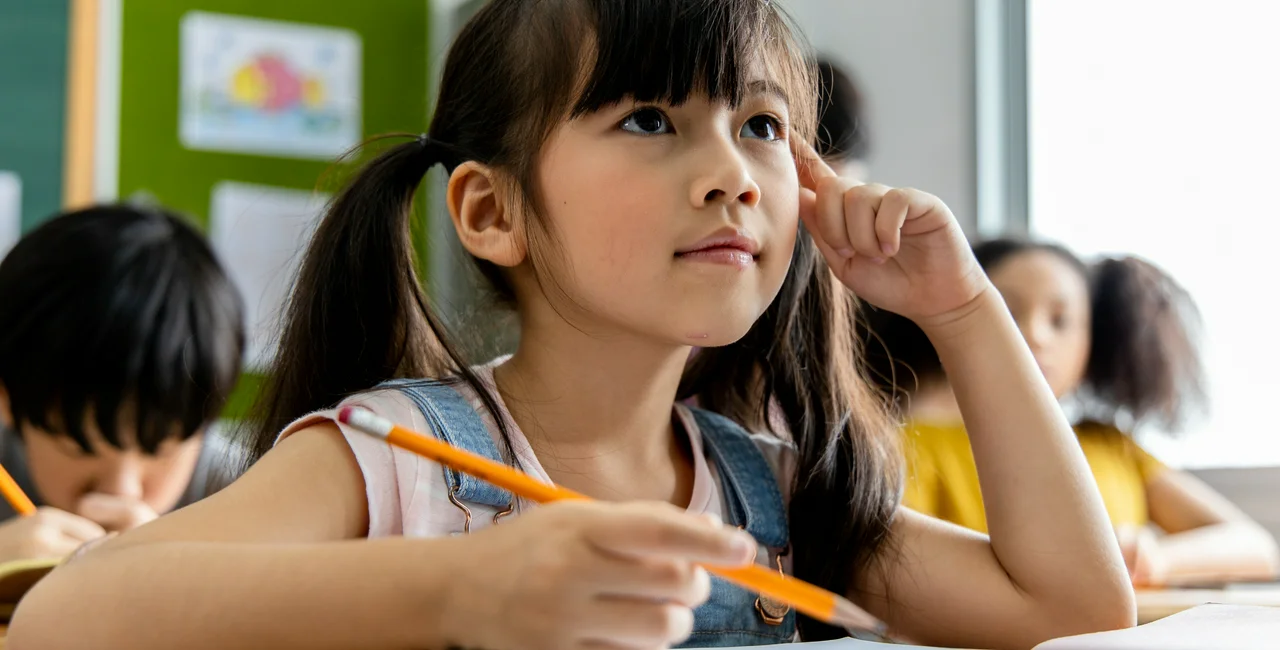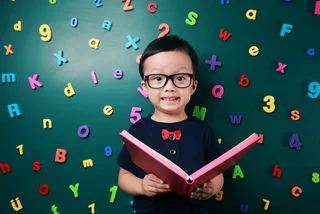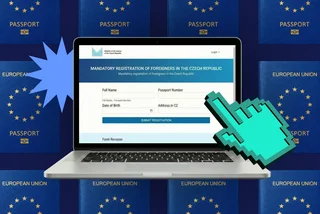For foreign families living long-term in Czechia, there are significant benefits to enrolling your child in a state school, not the least of which is a relatively high standard of education at a low cost. Plus, attending school in the language of the dominant culture can have positive social and adaptation benefits, not just for your student, but for the entire family.
But getting a Czech education can be a daunting task for children studying in a language that isn’t their birth tongue, or in a culture that's different from the one at home. It can also feel overwhelming for parents who aren’t familiar with the system and don’t have the language skills to communicate with teachers and administrators.
Historically, language and cultural gaps have made integration into Czech schools a challenge that was largely placed on the students and their families. Leaving parents who do not speak fluent Czech on their own for accessing basic information that would help them take more responsibility for their child’s educational success.
As the non-Czech parent of three multilingual children who’ve been educated from preschool through high school in Czech schools, I am familiar with the frustrations that come with not knowing the standard procedure or being linguistically limited when expressing my concerns or asking questions.
In my current role as an English teacher in a Czech elementary school, I can also see the compelling need for better support for teachers and school administrations to understand the requirements of multilingual families.
The good news is that given the rising number of multilingual children (in Czech vícejazyčné děti) enrolled in Czech schools progress is being made. Thanks largely to the efforts of local non-profit organizations in conjunction with government initiatives, recent years saw an overall improvement in services for multilingual families as well as better systemic support for teachers and educators.
From providing language and academic help to students to assisting parents with the school enrollment process and providing translation/interpretation services for communication with school officials, the organizations listed here are a great place to start for those looking for help navigating the country's school system.
#1 META services: At the forefront of fair education for all
META started in 2004 to ensure equal and fair educational opportunities for all children and students, regardless of their nation of birth, citizenship, or first language. META’s services are free of charge to students and their families.
The META website is a one-stop answer to most, if not all, questions related to education and social integration for school-age children and their families. Information on the website is provided in Czech, English, and Russian.
Beyond the elementary school years, META can help young adults get foreign diplomas recognized, enroll in language and professional training or apply to a higher learning institute.
TERMINOLOGY CZECH: FOREIGN VS. OMJ According to Jan Heinrich a social worker at META even a subtle change in the language of classification can have a long-reaching positive impact on a student’s integration process. Although the Czech system still uses terms like žáci cizinci (foreign students), or žáci s neznalostí vyučovacího jazyka, (children who don’t know the language of instruction), Heinrich tells me that META’s preferred classification is děti a žáci s odlišným mateřským jazykem or, in short, dětí s OMJ. In English, this translates to children and students with a different first language. “It’s an empowering term,” Heinrich tells me. “By putting the children’s strengths first, in that they speak a language and have access to a base of knowledge that others in the classroom don’t, we shift the description of their difference to the positive.”
Don't speak Czech? To avoid cultural or linguistic misunderstandings META recommends using an interpreter or a mediator to help parents clearly communicate their child’s needs and to help the school clearly understand. Get in touch here.
TIP: META's Practical Guide walks parents through all the stages of a Czech education, from preschool registration to selecting a high school and completing entrance exams. It's available online in a variety of languages.
#2 Integration Center of Prague
Founded by the city of Prague in 2012, the Integration Center of Prague (Integrační centrum Praha, or ICP) is a public service company that provides a wide range of social resources for multilingual families. ICP is funded by the EU Asylum, Migration and Integration Fund, the Czech Ministry of the Interior, and the Prague City Council. ICP provides its services free of charge, and its website is in six different languages. Services are available for non-EU citizens.
TIP: ICP has developed a game for PC or Tablet called Přišerky v hlavě (Monsters in our heads). The game exists in the Czech language and was explicitly designed for Czech students to learn more about foreigners living in the Czech Republic.
For adults, ICP offers a wide range of legal and social consulting on topics related to employment, social security, healthcare, housing, and education. Through their social counseling services, a parent can request help locating the best school for their child and find an interpreter to facilitate communication with school authorities. Other in-demand areas of assistance include help with the recognition of foreign education (university degree nostrification) and applying for the child allowance social benefit.
ICP’s in-person interpretation services include accompaniment to any public institution, including schools. If you are not certain of the correct institution or authority to contact, ICP can provide online interpretation via Skype.
The center also offers a range (A1, A2, and B1 levels) of semester-long Czech language courses for adults as well as intensive summer courses for children aged 6 to 15. These courses are primarily intended for non-EU citizens (third-country nationals) who have a long-term residence in the Czech Republic (excluding asylum reasons). The standard Czech language courses for beginners (A1, A2) are also open to students from the age of 15.

Throughout the year, ICP holds seminars and workshops in different languages (English, Vietnamese, Ukrainian, Russian, Arabic, and Chinese) to educate foreigners about Czech culture including its educational system. The best way to access the ICP counseling services is to contact them by phone. Most appointments can be arranged within 1-2 weeks.
#3 Regional Integration Center (CPIC)
For multilingual families living outside Prague, regional integration centers provide free assistance similar to that offered by ICP. Since 2009, the Ministry of Interior has gradually developed a system of 14 regional integration centers (CPIC) with 4 additional centers operating under different authorities. These centers offer social and legal counseling, Czech language courses, interpretation services, cultural courses, libraries equipped with an internet lab, and community liaisons. Many of the centers sponsor regular social and cultural events. Find your nearest regional center here.
TIP: In addition to IPC and CPIC find a comprehensive list of intercultural organizations and helpful contacts under the "Prague for All" project here.
#4 Children and Youth Centers
Attending a Czech school is only one aspect of a multilingual child or student’s integration journey. META's Jan Heinrich told me that for multilingual children who may struggle academically (at least in the beginning) having a way to interact with other Czech students outside of the classroom is critical. Finding fun and purposeful ways to spend free time helps children feel less isolated. From his experience, he has seen these informal aspects of integration do so much to help a student find his or her place in a new environment.
Many Czech schools offer their own after-school activities, but for a wider range of options check out one of the 15 Prague branches of Dům dětí a mládeže (DDM) or Children and Youth Centres. These organizations offer classes, activities, sports, weekend workshops, and even trips for children, teens, and adults at a low cost.
While most of the information about DDM exists in the Czech language only, a recent integration campaign co-sponsored by DDM, the Ministry of the Interior, and the Prague City Council has produced a pamphlet in English inviting foreigners who don’t speak Czech to enroll in these courses. As part of the project, intercultural workers can accompany families to DDM centers, help facilitate course registration and provide other necessary aid so that a newcomer can have a positive experience.
#5 InBáze
InBáze community center based in Prague 2 offers counseling and other social services to immigrants in a variety of languages. Its help for students includes tutoring, Czech language programs, and, for parents, accompaniment to appointments. But its regular events and activities also put an educational spin on integration, including its unique "Crates of Stories" project that sees kids from multicultural backgrounds read a fairy tale in Czech and a foreign language.
In 2014, InBáze began collaborating and working with schools and teachers on projects, which focus on multicultural upbringing and education and support for teaching children with a different mother tongue. It now offers individual tutoring for foreign children in Czech secondary and primary schools. Read more about their support for foreign students here.
It's clear the cultural benefits of having a child in a Czech school go both ways. Bringing diverse perspectives into Czech schools increases respect for different cultures within the Czech society, and helps to create a culture of tolerance essential in today’s global world.












 Reading time: 7 minutes
Reading time: 7 minutes 























